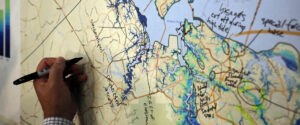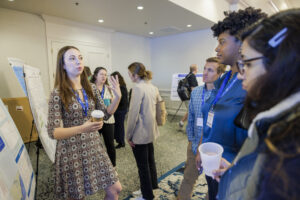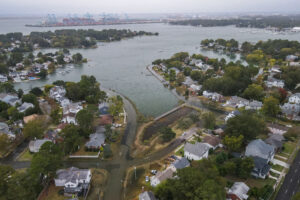Above left to right: Katherine (Kathy) Longmire, Shaelyn Patzer, and Emily (Victoria) Long
2021 Knauss Fellowship Finalists Announced
Virginia Sea Grant is pleased to announce three 2021 finalists for the John A. Knauss Marine Policy Fellowship program. Three students from Virginia institutions have been chosen for this prestigious fellowship, named for one of Sea Grant’s founders and former National Oceanic and Atmospheric Administration (NOAA) administrator. Each class of Knauss fellows is an impressive group with diverse backgrounds and interests. This year’s class of 74 talented early career professionals represent 27 of the 34 Sea Grant programs and will be the 42nd class since the program began in 1979.
“The Knauss Fellowship is an incredible educational and professional experience for graduate students who are interested in the interface of science and policy,” said Virginia Sea Grant’s Fellowship and Research Program Coordinator, Sam Lake. “All of the 2021 finalists have a strong passion for coastal communities and ecosystems and are eager to learn firsthand how science can inform policy. The experiences they will have as Knauss fellows will help prepare them to be future leaders in our communities, and we are looking forward to seeing the impact they will have in the years to come.”
Knauss finalists are chosen through a competitive process that includes several rounds of review. If applicants are successful at the state Sea Grant program level, their applications are then reviewed by a national panel of experts. This fall, the 2021 finalists will participate in virtual interviews with several executive or legislative host offices. Following placement, they will begin their fellowship in February 2021. The John A. Knauss Marine Policy Fellowship is a unique opportunity for exceptional graduate students to expand their educational and professional experience with national marine policy in the District of Columbia.
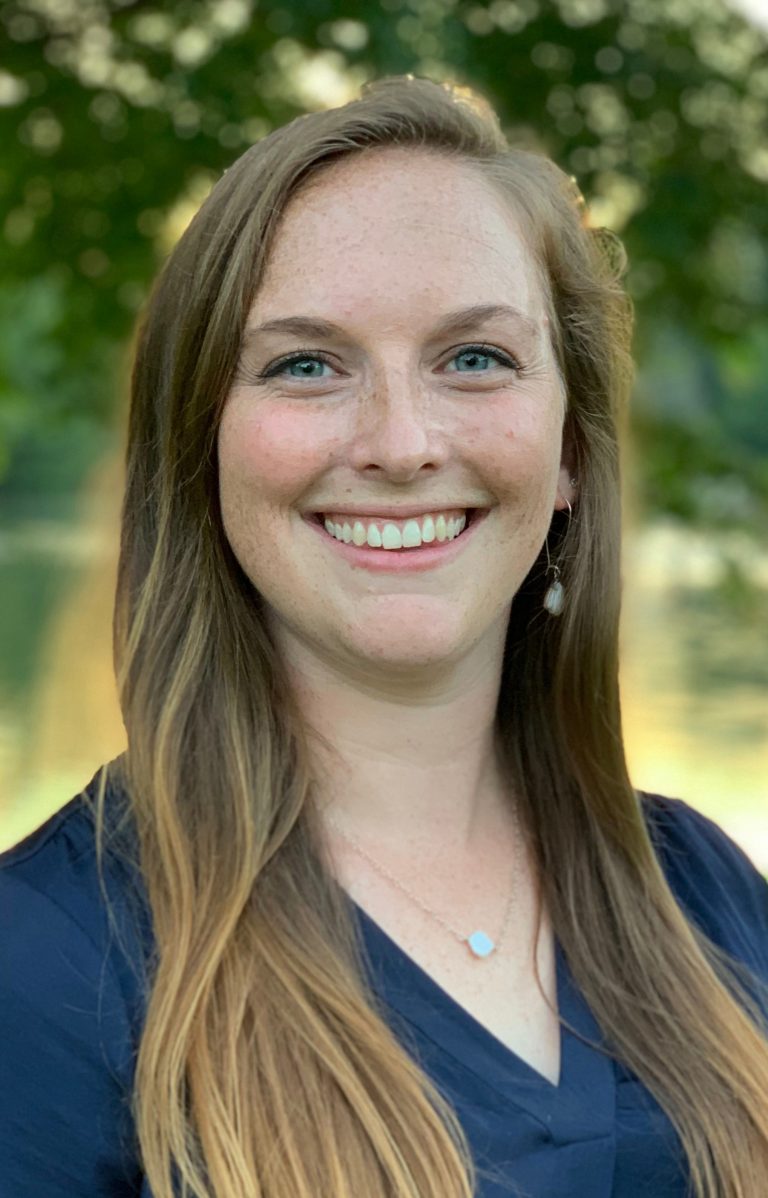
Victoria Long graduated from the University of Virginia in 2015 with a Bachelor of Science in environmental science. She remained at UVA to study sea level rise and inland marsh migration in abandoned agricultural fields as a Ph.D. student. As a native of Virginia’s Eastern Shore, an area of rapid sea level rise, Long witnessed the impacts of saltwater intrusion on coastal agriculture firsthand. As part of her research, she studies alternative, salt-tolerant crops that can benefit local economies and the environment. As a Knauss fellow, Long hopes to learn how science informs federal policy to address social, economic, and environmental issues.
Kathy Longmire graduated from the College of Charleston in 2016 with a Bachelor of Science in marine biology. As a Master’s student at the Virginia Institute of Marine Science (VIMS), Longmire studies the effects of ocean acidification on blue crabs, soft-shell clams, and their predator-prey interactions. She has helped coordinate the REU program at VIMS and has participated in a variety of science communication experiences, contributing to public outreach events and leading tours at the National Aquarium in Washington, D.C. As a Knauss fellow, Longmire hopes to address the consequences of climate change through science policy. She will spend the yearlong fellowship working in the National Sea Grant Office.
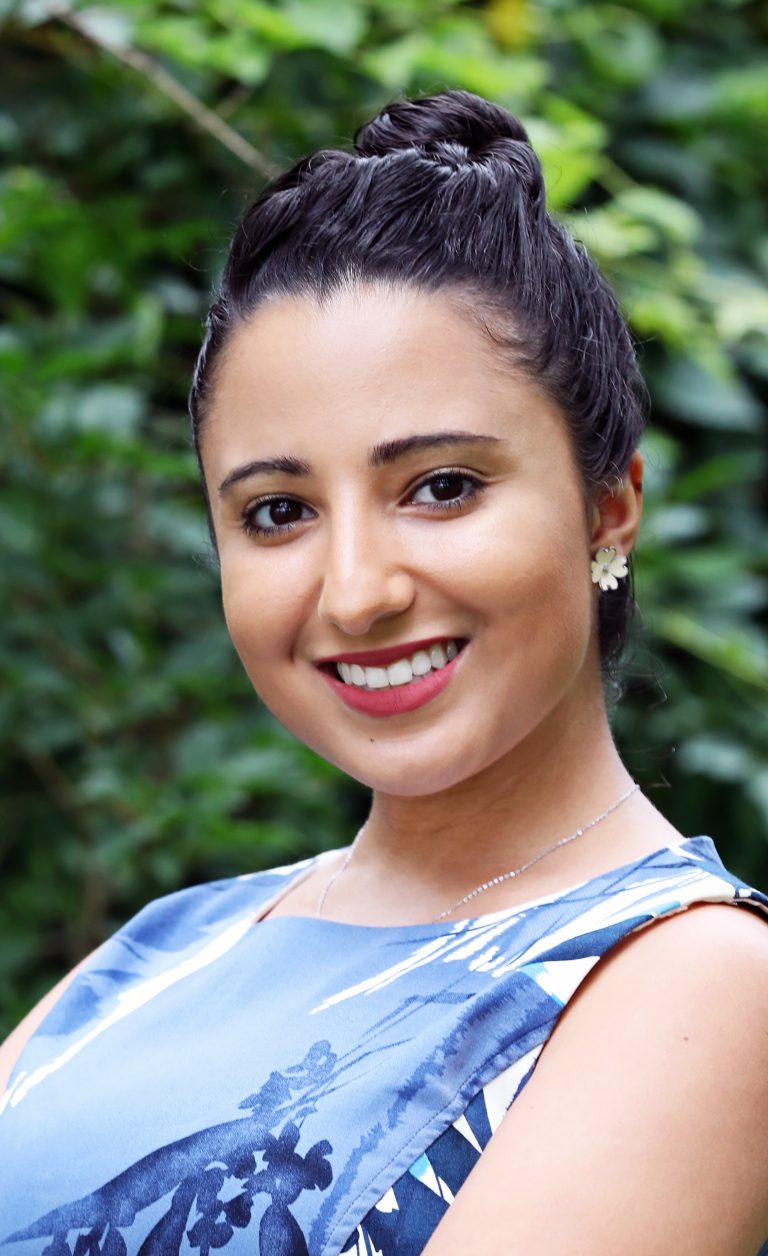
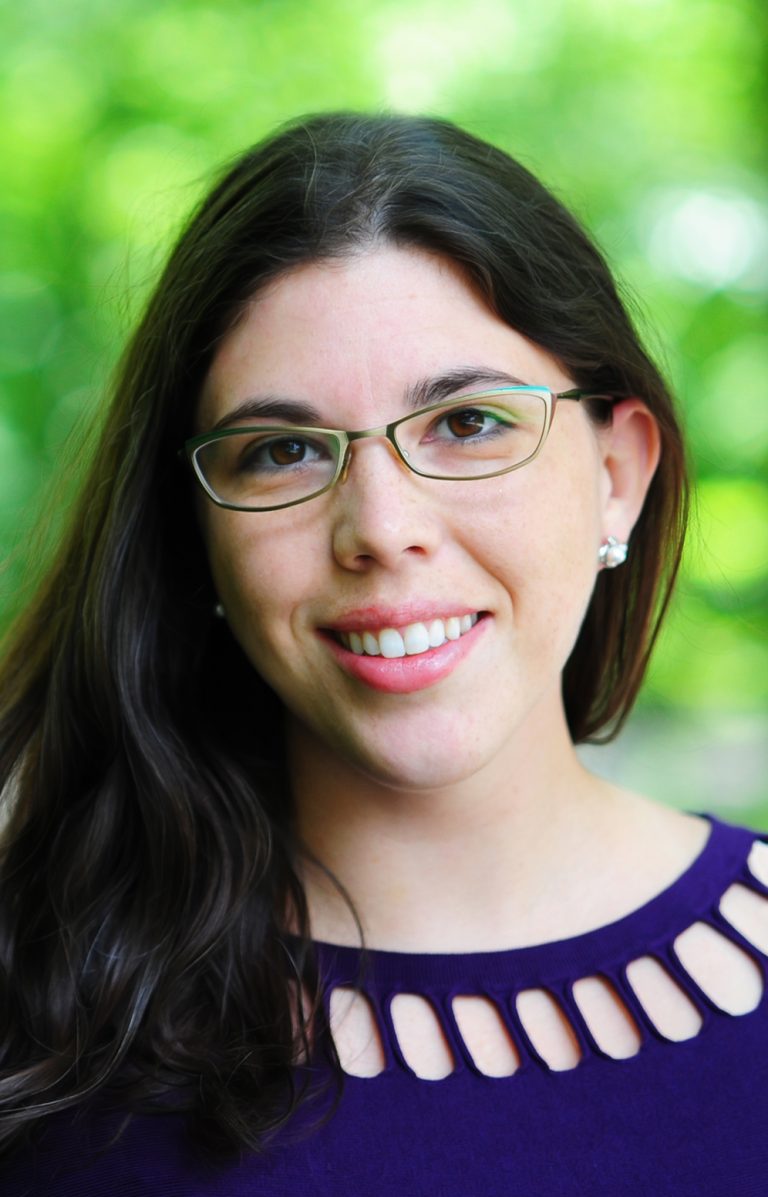
Shaelyn Patzer graduated from the University of Pittsburgh in 2012 with a Bachelor of Arts in history and English writing. She then earned a Master’s degree in science writing from Johns Hopkins University in 2016, and worked at the National Energy Technology Laboratory. She is currently a Ph.D. student at George Mason University in science communication, where she has focused on climate change communication and media coverage of climate issues. She has also coordinated a summer internship program in science communication for the National Park Service in collaboration with the GMU Center for Climate Change Communication. During the Knauss fellowship, she looks forward to learning more about federal policy for the nation’s water resources, and how science communication fits into the policymaking process. Patzer will serve as the interagency partnership & outreach specialist for the Water Power Technologies Office, Wind Energy Technologies Office, and Sea Grant during her fellowship.
“Interagency collaboration is a crucial tool for advancing U.S. renewable energy efforts, and I feel privileged that I’ll be in a position to contribute to furthering the success of these endeavors in coastal communities,” Patzer said.
[Sassy_Social_Share total_shares="ON"]

